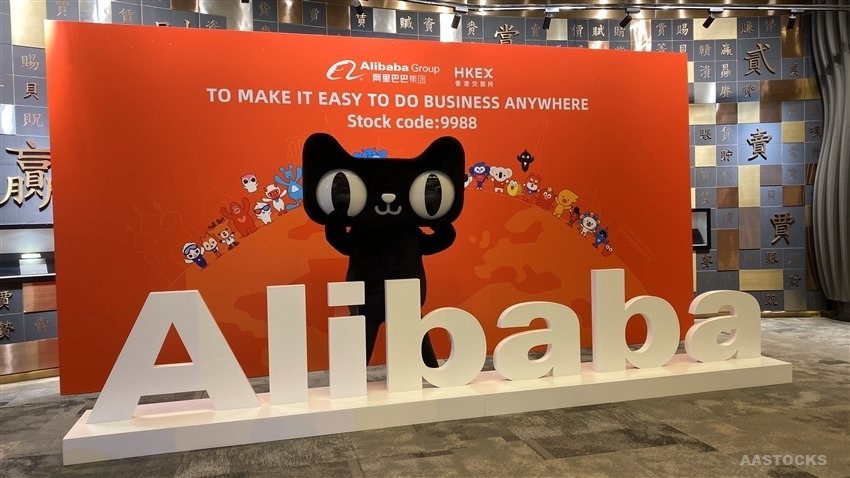Blockbuster IPOs have been little this year due to trade uncertainties in the world. Many major companies such as Aramco have postponed their IPO till the dust has cleared. However, Alibaba has withstood all obstacles and did its second IPO listing on Hong Kong Stock Exchange.
Through this Hong Kong secondary listing, Alibaba has raised US$11.2 billion by pricing its shares at HKD 176 a piece. At the time of writing, it is already trading at HKD 193.20 – up 9.7% in 2 days!
With all these excitement going on, we have come up with the 10 quick points below for you to find out more about Alibaba Hong Kong IPO debut:
#1 Largest E-commerce company in China
China has always been at the forefront in terms of e-commerce. According to U.S. Commercial Service of the U.S. Department of Commerce’s China e-commerce market size was US$1.33 trillion for 2018.
According to Asia Nikkei, Alibaba holds the most market share at an astounding 55% for 2018 – which means it captures e-commerce sales of US$731 BILLION dollars… i can’t even imagine how much is that in my mind…
#2 Stellar revenue growth
In the past 5 years, from 2015 to 2019, Alibaba’s revenue grew at a remarkable 394%. It grew from RMB 76 billion to RMB 376 billion.

#3 Impressive net income growth
With the immense increase in revenue, net income also jumped substantially. Net income grew 261% to RMB 87.6 billion in 2019.
A notable point is that in the fiscal year, Alibaba is the only e-commerce company that has positive profits. Closest rivals such as JD.com and Pinduoduo are still in the red.
#4 Alibaba’s Hong Kong listing was 40x oversubscribed
At the backdrop of the lack of blockbuster IPOs + Hong Kong ongoing protests, Alibaba Hong Kong IPO debut has provided a bright light to Asian investors.
A confluence of its reputable brand name, solid financials and admirable growth prospects, investors swarmed to participate in the IPO. According to WSJ, Alibaba was more than 40x oversubscribed!
#5 Alibaba Hong Kong IPO means easier monitoring/purchasing
Listing on NYSE means Asian investors must sacrifice sleep to monitor the Alibaba’s stock price.
Alibaba listing on HKEX gives priority to Asian investors (think fund managers) a time zone that is more comfortable to monitor. This is also a boon especially to Hong Kong/China asset managers who have a mandate to only invest in Hong Kong local shares.
Read also: Are Blue-Chips Safe Investments?
#6 Alibaba’s Expansion into South-East Asia
Southeast Asia touted to be the next region of growth. Alibaba has not let it up and has invested in several prominent budding companies in Southeast Asia.
Most notable was the US$1 billion acquisition of SEA’s leading e-commerce platform – Lazada. It has also taken up a 34% stake in Quantum Solutions, a Singpost subsidiary that offers end-to-end e-commerce logistics.
Hence, Alibaba’s Hong Kong listing may facilitate its SEA expansion to build the next era of growth.
#7 Biggest listing in year 2019
As you would have predicted, Alibaba’s Hong Kong listing was the largest listing for the year 2019 which raised US$11.2 billion. The second biggest listing was done by UBER, which raised US$8.1 billion.
#8 Sitting on US$43 billion after listing
After listing on HKEX and after raising US$11.2 billion, Alibaba will sit on a cool US$43 billion. Alibaba comes in second to Apple with cash holding of US$49 billion.
This means Alibaba will have plenty of gunpowder to further expand its arsenal in Southeast Asia, deepen its reach into the rural provinces in China or even do some important M&A of complementary businesses.
#9 Not only an e-commerce company
Without a doubt, first thing that comes to mind when Alibaba is mentioned is Taobao – its e-commerce platform.
However, Alibaba is more than just that. Over the years, Alibaba has dived into e-payment (Alipay), financial services (Ant Financial), food delivery (Eleme), and many more.
In short, Alibaba is a diverse company which has a built an ever expanding network across lots of industries. That’s where the massive cash hoard will perhaps come into play (mentioned in point #8).
#10 Alibaba to join Hang Seng Composite Index
According to AAStocks, Alibaba will join Hang Seng Composite Index from 9 Dec.
For a quick background, Hang Seng Composite Index is the equivalent of the more familiar Straits Times Index but its components are made of stocks listed on Hong Kong exchange.
Being part of the index shows the recognition given to the company due to its market capitalization and the volume of shares traded.
Conclusion
To sum up, Alibaba’s Hong Kong IPO definitely garnered lots of attention from the investment community. For many investors, they are very keen to get a slice of a juggernaut company which touches their everyday lives (Taobao, Alipay etc).
For Singaporean investors, one need to take note that since Alibaba’s stock 9988 is priced in HKD, there will be an exchange rate involved. It is advisable to check the SGD/HKD rate for the individual brokerage before committing to the purchase.
Another would be the possible custodian fees charged for your overseas holdings – paid to the brokerage for ‘jaga-ing’ your overseas stock holdings.
Last but not least, the Hong Kong stock market’s trading hours are only from 9.30am – 4.00pm so make sure you monitor Alibaba’s stock price within this timeframe.
Do you know that Master Investors like Warren Buffett has his own Unique Investing System which you can emulate yourself? We have distilled it into a simple 10-Step Checklist for you to decide how or when to buy/sell your stocks.
Simply click to receive your copy today!

